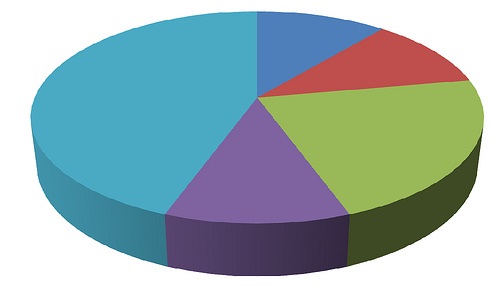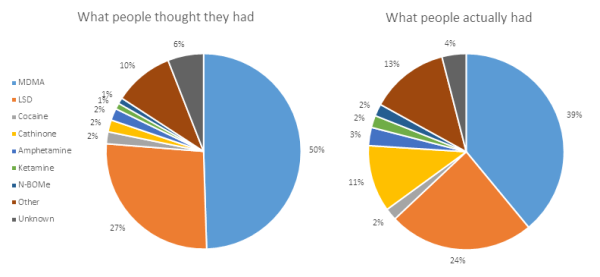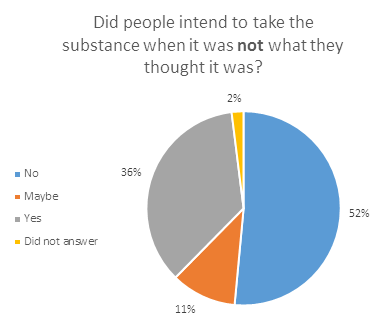Festival drug checking trial: Summary of results (2017)

During the 2016/2017 summer festival season, we helped community group KnowYourStuffNZ offer free drug testing to more than three hundred festival goers. The results of this testing were analysed and what we found told us that drug checking can reduce harm and might save lives.
KnowYourStuffNZ volunteers tested 330 substances at 8 festivals using reagent testing. Additional analysis using an FT-IR spectrometer was offered at 3 of those festivals.
Over three quarters of people thought they had MDMA or LSD, but in reality only two thirds were either of these. Instead, a total of 39 distinct substances were detected.

20% of samples contained none of the drug people thought they’d bought, and another 11% contained unexpected additional ingredients. If the substance was not ‘as advertised’ it was most commonly a cathinone, known as “bathsalts” - these are a highly unpredictable, potentially toxic type of new psychoactive substance within a group sometimes called research chemicals.
31%
of the drugs tested were not what people expected.When the drug was not at all what they expected or was adulterated with an unexpected psychoactive substance, over half said they planned not to use it, potentially averting serious harm.

Pie graph showing the proportion of people that intended to take a substance when it was NOT what they thought
The impact on people’s behaviour was significant with more considered and safer decisions being made after people discovered that what they had was NOT what they thought.
63%
said they wouldn't or maybe wouldn't take the substance after finding out it wasn't what they thought it was.If people decided they would still take the substance, the reason was usually that they had tried it before, or that they had had the unexpected substance before. However, people often commented that they intended to be more cautious based on the new information they had.
Recent news

Reflections from the 2024 UN Commission on Narcotic Drugs
Executive Director Sarah Helm reflects on this year's global drug conference
What can we learn from Australia’s free naloxone scheme?
As harm reduction advocates in Aotearoa push for better naloxone access, we look for lessons across the ditch.

A new approach to reporting on drug data
We've launched a new tool to help you find the latest drug data and changed how we report throughout the year.

